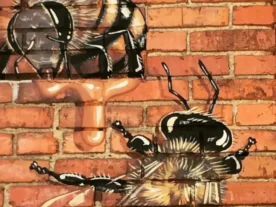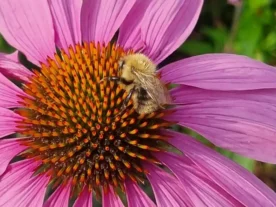Last month I had the opportunity to attend Performing medicines arts and culture training programme within Enfield. Hosted by Dr Amy Mallett and Carly Annable-Coop. As a founder and choreographer, I am delighted to get to work in a team. I met a fantastic community of artists and CICs that are part of Enfield borough and found the 2 days learning more about creative health which was very worthwhile.
We then thought about what we might be able to do to help reduce the amount of GP appointments in our borough. The social prescribing element meant that we, as artists, can connect to people to help improve their health and wellbeing as an alternative approach to medication.
These activities can be anything from crafts & making, movement & dance, music & singing, theatre & performance, visual arts & galleries, books & writing, museums & heritage. The parents, carers or families are referred by a link worker and then signposted to community groups to experience arts & culture.
Listen to the podcast of Melodies for Mums breathwork episode 1 here.
Hopefully enabling the lift of spirits by accessing art.
We delved into research that has proved that:
“Dancing can help people recover from severe mental illness”
“Reading aloud with others can reduce pain levels”
“Poetry can support families going through end - of - life process”
“Doing magic tricks helps children with muscles weakness and paralysis”
“Regular singing can improve respiratory health such as asthma and long COVID”
Finding moments of joy in each day whether it be having a dance around the kitchen or stretching your whole body can be very effective when looking at our self-care & wellbeing. Do you think dance is food for the soul? Do you feel better during/after a mini dance break?
The Performing Medicine Programme is a Clod ensemble initiative.
https://cultureonprescription.org.uk/
I believe that Movement is medicine. We are increasingly becoming motionless throughout our working days and as a result have more back pain, getting repetitive strain injuries and feeling sluggish. To help improve our posture, reduce stress and anxiety or to release powerful emotions.
I personally think we have forgotten more than we know; traditionally dance can be an important part of a ritual, for celebrations, for welcoming the new harvest season or rejoicing in a new birth. Dance history shows we had some serious moves that connected us socially. Dance was how stories and feelings were conveyed before language.
Humans have long used arts to make sense of the world, build connections and define themselves whilst benefiting from the arts’ therapeutic effects.
Some thoughts on dance therapy
It promotes self-awareness, self-esteem, and a safe space for the expression of feelings. Dance Therapy can help boost a person's mood and perception of body image
It can also:
- improve communication skills
- gain insights into patterns of behaviour
- create coping strategies and find new ways to manage life
Social prescribing
- Enables GPs, nurses, and other primary care professionals to refer people to a range of local, non-clinical services (Kings Fund)
- Cultural social prescribing is when these services involve cultural activities
- Culture: more cultural participation; enhanced opportunities for creative sector employment: new cultural assets and social infrastructure.
- Health: more personalised care, improved mental health and care for long COVD, reduced health inequalities.
Arts and culture on prescription, through NHS referral or self-referral can benefit everyone, from children to adults, older generations, and families alike.
I hope we can start a rebellion and get everybody dancing more. Through our Waggle Dance workshops we can create expression sessions and share our dancing skills with each other.
The cost of not moving is far greater - we need to start somewhere.
Let’s turn up the music and increase our well-beeing this year.





